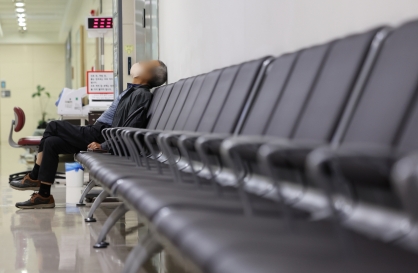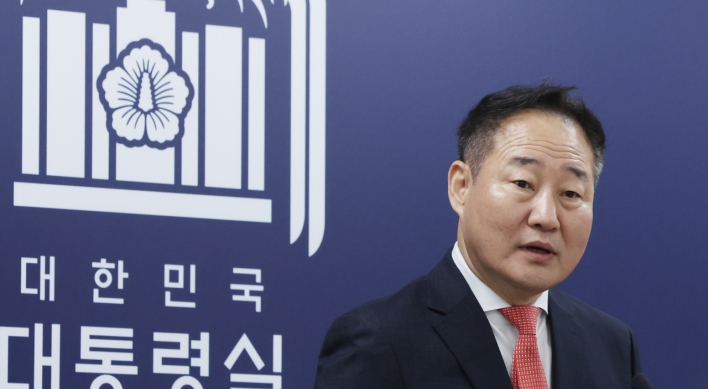About 1,000 Chinese students are joining their Taiwanese counterparts at college campuses here today, as the new academic year starts.
They are the first mainlanders to study here as full-time degree students under a new initiative that the Taiwanese authorities hope will boost cross-strait understanding while raising enrolment at local colleges.
However, the intake reached only half the quota set by the Education Ministry, triggering criticism in China that multiple restrictions imposed by Taiwan, such as a ban on government scholarships and employment, were discriminatory and even insulting.
Expectations are presumably the highest at Tamkang University, a well-known private college, which has enrolled 79 of the 975 incoming students, more than any other Taiwanese institution.
Dr Tai Wan-chin, Tamkang’s vice-president for international affairs, said the Chinese students had enrolled in courses in English and Japanese, information engineering and innovation, mass communications and architecture.
Apart from one doctoral and three master’s students, all are undergraduates.
Last Friday, they attended an orientation session during which they met tutors and Taiwanese classmates over a hotpot dinner.
“We hope to provide the mainland students with a friendly, mutually respectful and quality learning environment,” Dr Tai told The Straits Times. “Politics should take a back seat on campus.”
Mainland undergraduates have been coming to Taiwan for years on brief stints as exchange students, and in general, have got along with their Taiwanese peers ― even if they do not see eye to eye on cross-strait politics.
China remains bent on eventual reunification with Taiwan, although the two have been ruled separately since 1949, following years of civil war.
Beijing-friendly Taiwan President Ma Ying-jeou proposed opening the doors to Chinese students during his election campaign, as part of a strategy to improve ties with China.
Proponents argue that doing so benefits Taiwan’s 140 universities, where enrolment has been shrinking after years of low birth rates.
However, many Taiwanese are opposed to the move for fear that the best universities and jobs will be snapped up by mainland Chinese.
In August last year, the Kuomintang-controlled Parliament finally pushed through legislative amendments ― including recognition of qualifications awarded by 41 universities in China ― that paved the way for mainland students to come over.
However, the amendments came with numerous restrictions intended to silence detractors led by the opposition Democratic Progressive Party.
Intake from mainland China is limited to 1 percent of the total enrolment for Taiwan universities.
Public universities ― which are generally more prestigious and receive more government subsidies ― can take in only doctoral and master’s students.
Only residents of Beijing, Shanghai, Jiangsu, Zhejiang, Fujian and Guangdong ― six of China’s richest cities and provinces ― can apply, and they are expressly barred from studying medicine, or subjects related to national security or key technologies such as aeronautics.
Chinese students are also not allowed to apply for government scholarships or to work outside their studies or to remain in Taiwan after they graduate.
The restrictions do not apply to the other 22,000 foreigners, mainly ethnic Chinese from Malaysia, Indonesia and the United States, enrolled here.
By the time applications closed in June, only about 3,000 Chinese had signed up for the 2,141 places available.
Some of those who secured a place ultimately decided against coming to Taiwan.
“I feel that Taiwan’s policy is rather unfriendly,” one of these students, identified by only her surname Lin, was quoted as saying by Nanfang Daily, a mainland newspaper.
Instead, Lin ― who had applied to do a master’s degree in management in Taiwan after graduating from Sun Yat-sen University in Guangdong ― accepted an offer from The Chinese University of Hong Kong. There, she will be able to apply for a government scholarship and to work after graduation.
Dr Michael Chen, president of the privately run Ling Tung University in central Taiwan, said that when he went to China to hold recruitment talks, parents complained that the various restrictions set by Taiwan were a form of prejudice.
Yet, some believe that even without the restrictions, the program could still be mired in opposition.
“A step-by-step approach is necessary,” said Dr Tai from Tamkang University, who hopes to attract up to 20 per cent more mainland students next year.
Chu Chun-chang, a senior official at the Education Ministry’s higher education department, told The Straits Times that some of the restrictions might be relaxed for the next academic year.
By Lee Seok Hwai
(The Straits Times)
They are the first mainlanders to study here as full-time degree students under a new initiative that the Taiwanese authorities hope will boost cross-strait understanding while raising enrolment at local colleges.
However, the intake reached only half the quota set by the Education Ministry, triggering criticism in China that multiple restrictions imposed by Taiwan, such as a ban on government scholarships and employment, were discriminatory and even insulting.
Expectations are presumably the highest at Tamkang University, a well-known private college, which has enrolled 79 of the 975 incoming students, more than any other Taiwanese institution.
Dr Tai Wan-chin, Tamkang’s vice-president for international affairs, said the Chinese students had enrolled in courses in English and Japanese, information engineering and innovation, mass communications and architecture.
Apart from one doctoral and three master’s students, all are undergraduates.
Last Friday, they attended an orientation session during which they met tutors and Taiwanese classmates over a hotpot dinner.
“We hope to provide the mainland students with a friendly, mutually respectful and quality learning environment,” Dr Tai told The Straits Times. “Politics should take a back seat on campus.”
Mainland undergraduates have been coming to Taiwan for years on brief stints as exchange students, and in general, have got along with their Taiwanese peers ― even if they do not see eye to eye on cross-strait politics.
China remains bent on eventual reunification with Taiwan, although the two have been ruled separately since 1949, following years of civil war.
Beijing-friendly Taiwan President Ma Ying-jeou proposed opening the doors to Chinese students during his election campaign, as part of a strategy to improve ties with China.
Proponents argue that doing so benefits Taiwan’s 140 universities, where enrolment has been shrinking after years of low birth rates.
However, many Taiwanese are opposed to the move for fear that the best universities and jobs will be snapped up by mainland Chinese.
In August last year, the Kuomintang-controlled Parliament finally pushed through legislative amendments ― including recognition of qualifications awarded by 41 universities in China ― that paved the way for mainland students to come over.
However, the amendments came with numerous restrictions intended to silence detractors led by the opposition Democratic Progressive Party.
Intake from mainland China is limited to 1 percent of the total enrolment for Taiwan universities.
Public universities ― which are generally more prestigious and receive more government subsidies ― can take in only doctoral and master’s students.
Only residents of Beijing, Shanghai, Jiangsu, Zhejiang, Fujian and Guangdong ― six of China’s richest cities and provinces ― can apply, and they are expressly barred from studying medicine, or subjects related to national security or key technologies such as aeronautics.
Chinese students are also not allowed to apply for government scholarships or to work outside their studies or to remain in Taiwan after they graduate.
The restrictions do not apply to the other 22,000 foreigners, mainly ethnic Chinese from Malaysia, Indonesia and the United States, enrolled here.
By the time applications closed in June, only about 3,000 Chinese had signed up for the 2,141 places available.
Some of those who secured a place ultimately decided against coming to Taiwan.
“I feel that Taiwan’s policy is rather unfriendly,” one of these students, identified by only her surname Lin, was quoted as saying by Nanfang Daily, a mainland newspaper.
Instead, Lin ― who had applied to do a master’s degree in management in Taiwan after graduating from Sun Yat-sen University in Guangdong ― accepted an offer from The Chinese University of Hong Kong. There, she will be able to apply for a government scholarship and to work after graduation.
Dr Michael Chen, president of the privately run Ling Tung University in central Taiwan, said that when he went to China to hold recruitment talks, parents complained that the various restrictions set by Taiwan were a form of prejudice.
Yet, some believe that even without the restrictions, the program could still be mired in opposition.
“A step-by-step approach is necessary,” said Dr Tai from Tamkang University, who hopes to attract up to 20 per cent more mainland students next year.
Chu Chun-chang, a senior official at the Education Ministry’s higher education department, told The Straits Times that some of the restrictions might be relaxed for the next academic year.
By Lee Seok Hwai
(The Straits Times)






![[K-pop’s dilemma] Can K-pop break free from ‘fandom’ model?](http://res.heraldm.com/phpwas/restmb_idxmake.php?idx=644&simg=/content/image/2024/05/09/20240509050541_0.jpg&u=20240509173751)











